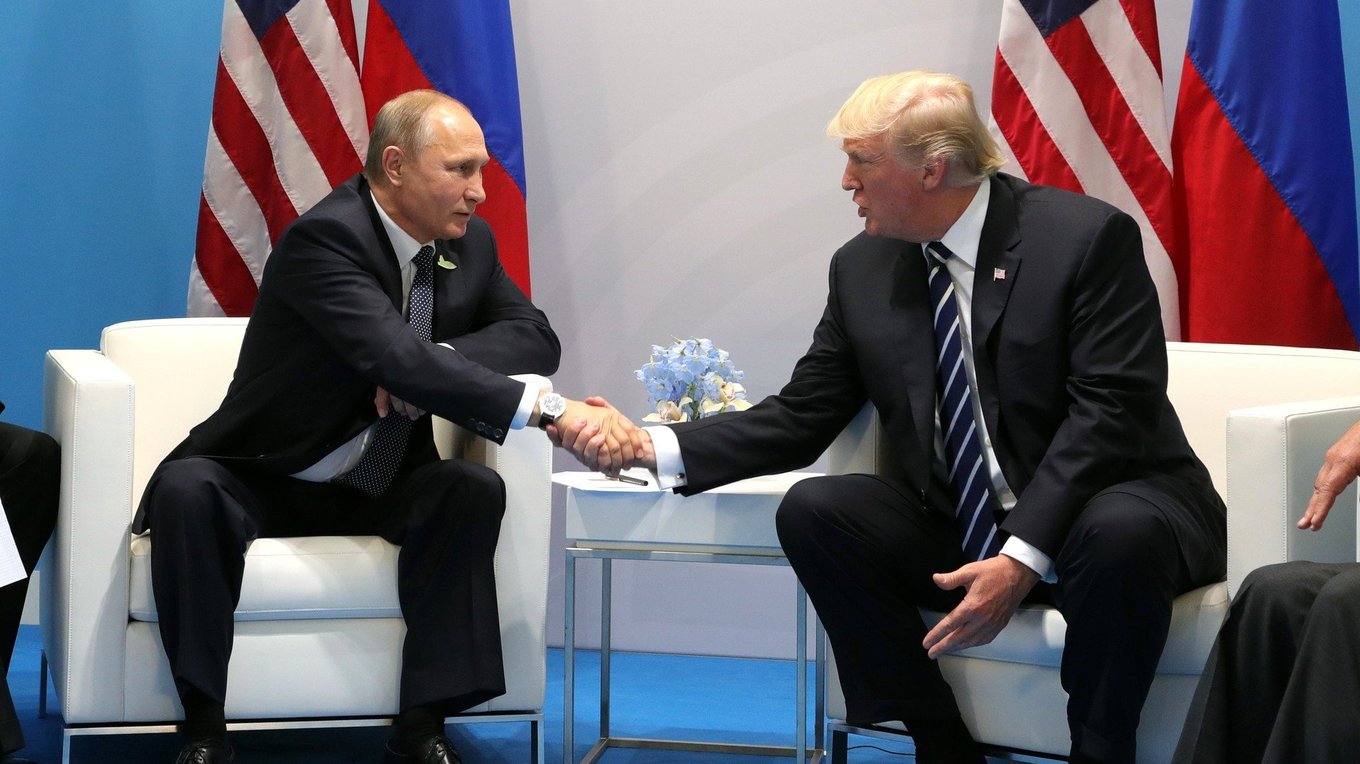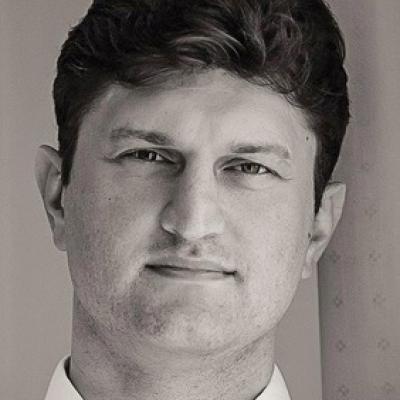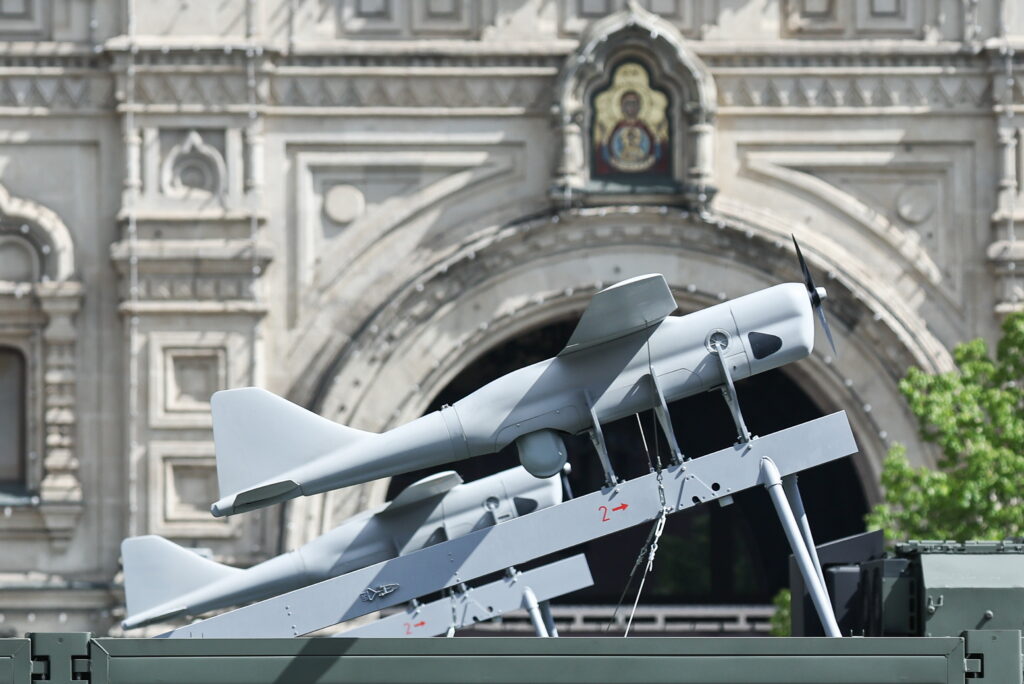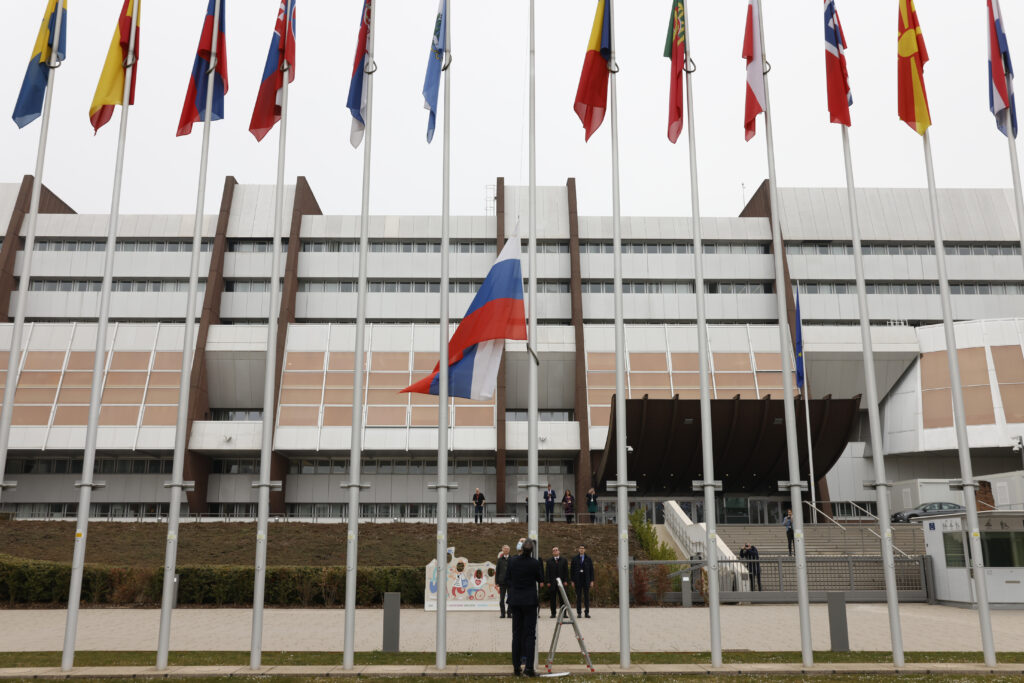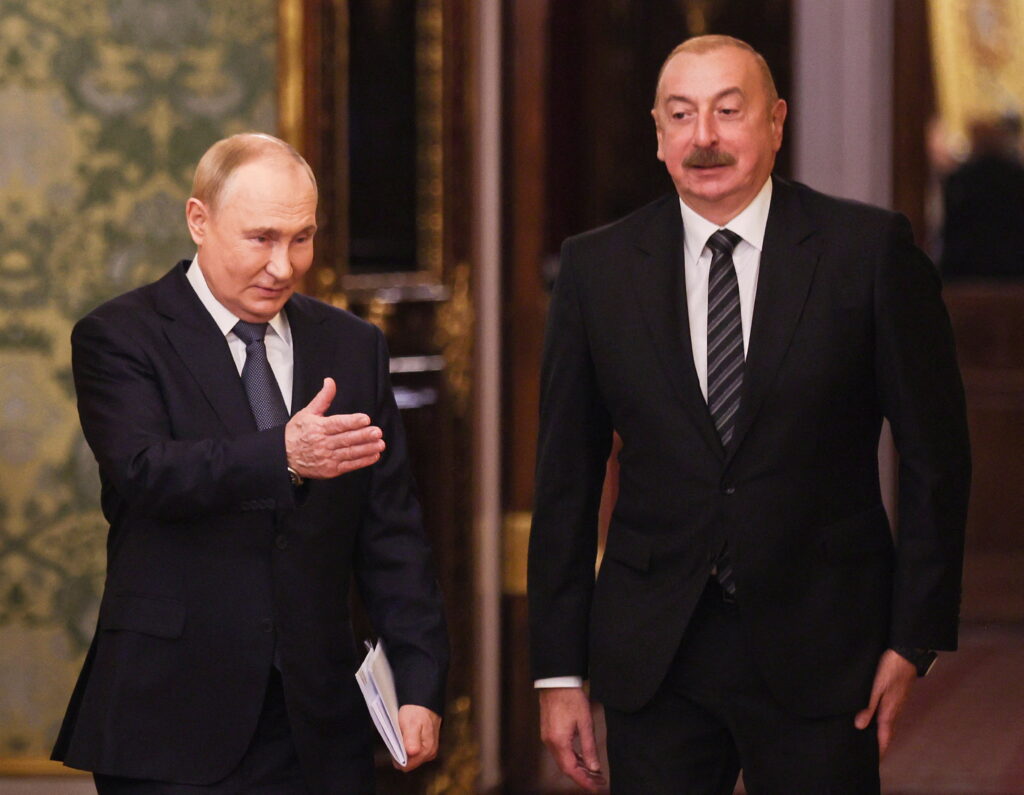The international news media are full of alarmist messages about the potential fallout from the ongoing war in Syria. Russian state television is perhaps the most apocalyptic, telling its viewers which products to take to a bomb shelter in the event of a nuclear war. On the other side of the Atlantic, President Donald Trump’s messages on Twitter about missile launches is not exactly putting minds at ease.
Retired statesmen are not reassuring right now, either: Mikhail Gorbachev frightens the world with talk of “big trouble,” and laments that Washington and Moscow cannot reach an agreement, while the UN Secretary-General has already announced the return of the Cold War. However, there is no new cold war and it is unlikely to happen. What must strike Gorbachev, however, is how the Kremlin’s actions today fully correspond with the logic of his own Soviet foreign policy pursued during the perestroika era. Putin is trying to do what Gorbachev once succeeded in doing: selling the threat of a big war to the West at the highest possible price.
The flip side of Gorbachev’s ‘New Thinking’
Today it is commonly believed that Gorbachev’s ‘New Thinking’ was the quintessence of Soviet foreign policy in the late 1980s, a policy that ultimately helped to avoid an escalation of tensions in the relations between the West and the USSR. If we look closely at the events of that time, however, things will become less obvious. The core of Gorbachev’s idea was that of ‘a pan-European home’, first formulated by the Soviet Secretary General during his visit to Paris in September, 1985. When speaking on French television, he said: ‘France and the USSR have different views on human values, but there is a common interest: to live in peace and avoid nuclear war.’ And this was not Gorbachev’s slip of the tongue. He actually offered a big deal to the West: to preserve spheres of influence and the division of the world into two camps, but to reduce the number of nuclear warheads for the sake of peaceful coexistence. The content of this approach was very close to the Soviet policy of the ‘détente’ period. But was the threat of a nuclear war really so significant?
Undoubtedly, the concentration of nuclear and conventional weapons in Europe in the mid-1980s posed a potential threat to the security of the continent and of the world. There were about three million armed men on each side of the Berlin Wall. At the same time, the balance of military forces created the ‘deterrence effect’: no matter who would start a war with the use of nuclear weapons, the outcome would always be the same, i.e.- mutual destruction. However, the Cuban Missile Crisis already showed that both the West and the USSR were well aware of the consequences that a potential use of nuclear weapons might entail. Even after a Soviet fighter shot down a passenger plane Boeing 747 in the autumn of 1983, U.S. President Ronald Reagan did call the incident ‘a crime against humanity and an act of barbaric cruelty’, but nevertheless he did not intensify the confrontational tone towards Moscow and soon took a restrained and largely conciliatory position in his famous speech ‘Ivan and Anya’. At that time, nobody was seriously planning to be the first to use nuclear weapons against the other party.
Objectively speaking, the arguments presented by Gorbachev to justify his ‘New Thinking’ and the concept of ‘a pan-European home’ did not follow from the status of international relations in the mid-1980s. The level of existing threats at that time did not call for a swift and universal disposal of weapons. Gorbachev’s initiatives looked especially unusual and revolutionary in comparison with the smooth and consistent process of confidence building after the Cuban Missile Crisis.
However, Gorbachev was clearly in a hurry. The Soviet leadership’s haste about disarmament was primarily due to internal economic reasons. Military expenditures accounted for more than 30% of the country’s budget, global oil prices in 1980–1986 dropped by half, and the focus on heavy industry proved to be a failure. In the context of falling prices on energy resources, it became ever more difficult to maintain expenditures on large-scale projects year after year, and low labour efficiency was an impediment to satisfying the demand for consumer goods in the country.
When initiating his ‘New Thinking’, Gorbachev simultaneously rejected the ‘Brezhnev doctrine’ and the participation of the USSR in the arms race. However, he was not going to abandon the inter-bloc confrontation. His goal was only to pause it and take a breather. It was important for him to make the Soviet foreign policy less costly in the face of a serious economic crisis.
Thus, the ‘New Thinking’ was not devised to implement a profound transformation of the Soviet approach to international security, but to reinforce the status quo on the continent and to sell the nuclear threat to the West at a good price.
The West rushing to the rescue
The Western elites found it difficult to believe that Moscow’s intentions were earnest. They still remembered the Soviet troops’ unceremonious entry into Afghanistan and the firm suppression of dissent in ‘people’s democracies’. Therefore, many thought that the ‘New Thinking’ and the ‘pan-European home’ were an open provocation from the Kremlin. In other words, preparatory work had not been done to launch disarmament processes, as there was no necessary foundation of trust.
However, time worked against the Kremlin. Already in 1987, Gorbachev published his book Perestroika: New Thinking for Our Country and the World, where the concept of ‘a pan-European home’ was presented in an adapted form: ‘human values’ and ‘interests’ were rearranged. At the heart of Gorbachev’s renewed vision lay the notion of Europe as a space for the coexistence of a market economy and the socialist economic model, united by the need to confront global threats, with nuclear war being the most dreaded one. On this basis, Gorbachev proposed that the ‘pan-European house’ should be built on universal human values, such as human life and the environment. Everything else was declared secondary.
Gradually, despite the prevailing scepticism about Gorbachev’s initiatives, Western countries largely met the USSR half-way, signing multiple treaties on the reduction of strategic and conventional weapons and allocating impressive amounts for this purpose. It was understood that the economic difficulties of the Soviet regime could affect its ability to control its own arms stockpiles. In fact, the West became a hostage to the crumbling Soviet empire. The West did everything possible to prevent the USSR from losing its monopoly on the possession of a nuclear arsenal in the region. Therefore, Western leaders provided enormous political and financial support to Gorbachev in his efforts to preserve the integrity of the country. It is interesting to recall the significant position assumed by George Bush Senior: in August 1991, he made a visit to Kiev in order to try and convince the Verkhovna Rada not to take steps towards secession from the USSR. Ukraine’s independence was recognised by the USA at a later moment versus other countries, i.e. on 25 December 1991, when the first and last president of the USSR, Mikhail Gorbachev, resigned and the dissolution of the USSR became a fait accompli.
The participation of the West also provided the Kremlin with an opportunity to save face on the global arena: without western support, the Kremlin’s disarmament would probably look like a surrender in a hopelessly lost Cold War. Moreover, the visible success in foreign policy helped Moscow to distract people’s attention from everyday problems. As the economy was collapsing and as the USSR was becoming more vulnerable, the Soviet leadership attached ever more importance to putting on a show. Had the USA and Europe firmly refused to reduce their arms and allocate money for the liquidation of the Soviet nuclear arsenal, Moscow’s position would have become even more difficult.
No big war, no big deal
The current Russian leadership needs this show no less than Gorbachev did in the era of perestroika. Today, the demonstration of ‘successes’ in the international arena is intended to conceal the sad condition of the country’s economy. Russians’ real incomes have been falling for four consecutive years, and the stratification between the rich and the poor has reached enormous proportions. According to Credit Suisse, 1% of the richest Russians account for 74.5% of the income generated by all households in the country. The technological backwardness is also striking: Russia’s average share in the global market of most advanced high-tech products (pharmaceuticals, computers and aerospace technology) does not exceed 0.5%. That is exactly why Syria, Ukraine and the United States have been constantly on front pages of the Russian media for years, and Putin’s pre-election speeches were built mostly around foreign policy issues.
However, neither Putin nor his circles fear a collapse of the Russian economy. Russian elites have learned the essential lesson from Gorbachev: if there are any consequences of the Kremlin’s irresponsible and short-sighted policy, the West will pay the price anyway. This was the case in the late 1980s, and, apparently, the situation will be repeated towards the end of Putin’s regime. After all, during the last thirty years the West has not found a way to confront a country which is a permanent member of the UN Security Council, holds nuclear weapons and systematically violates international law. This understanding gives the Kremlin endless opportunities to raise the stakes in the international arena. In fact, during Putin’s reign, Russia has become an exporter of security threats on the continent.
Nevertheless, Moscow’s potential for destabilising the world order should not be overestimated. Russia is not the USSR. The Soviet empire lived in a semi-autocratic regime, and the apparatchiks were in no way connected to the capitalist world. By contrast, Russia is much more integrated into the global economy despite its relatively modest role in world trade. Russian kleptocratic elites have bought mansions in New York and London, have sent their children to study at Yale and the London School of Economics, and prefer to relax in their villas on Cote d’Azur and Miami. This is the key difference between the current situation and the Cold War. Driven by the communist ideology, Soviet functionaries were much more prone to instigate dangerous adventures than the current Kremlin inhabitants. The latter are neither fanatics nor madmen. They are unlikely to go all the way in their threats against the West since they have a lot to lose in case of a direct confrontation.
Well, what does the Kremlin really want, then? Putin’s goal is to take revenge for the USSR’s defeat in the Cold War and to strike a big deal with the West on the spheres of influence in Europe and the Middle East. This is needed mainly to legitimise the Russian political regime in the eyes of Russians who are getting ever poorer. For this purpose, Moscow will try to maintain a consistently high level of tension on the international arena, and yet it will not cross the line that would make the West ready to respond extremely harshly to provocations and aggression from its ‘difficult Eastern partner’. In addition, the Russian president does not have too many trump cards in his hands. By and large, he has hardly anything left at his disposal apart from bluffing. With such a hand of cards, the chances of striking a deal with the West are close to nil.
